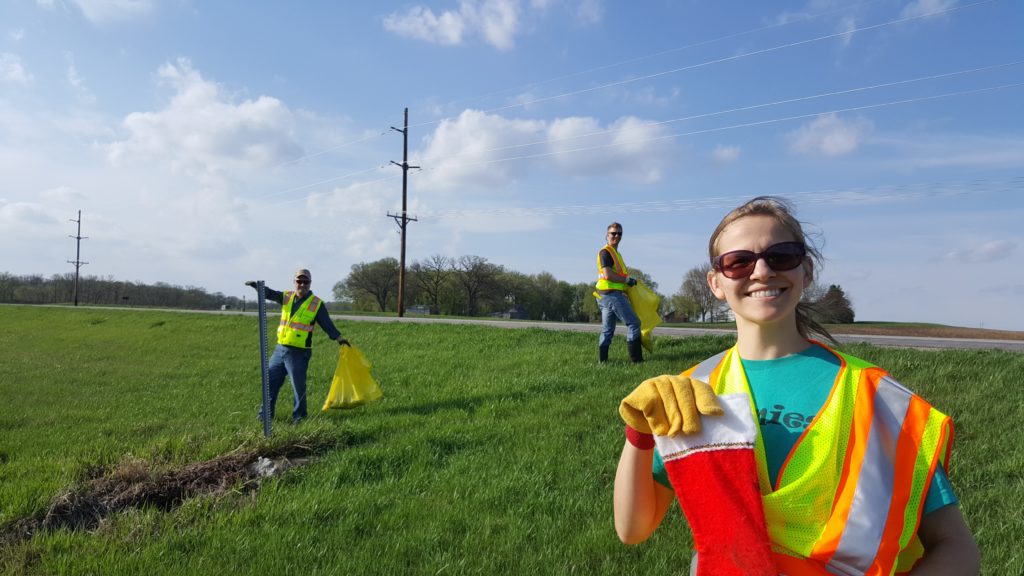
When you think of the term “leader”, who or what comes to mind?
For most people the answer might be a CEO, politician, a parent, or a historical figure like Martin Luther King Jr. While many of us may not be a leader in the traditional sense, nearly everyone leads in some situations (Elmore). This is because leadership is not just the act of supervising employees or running a government agency. Rather, it is the act of influencing others, something we encounter regularly in our day to day lives.
“Everyone is a leader because everyone influences someone”
–John C. Maxwell
When we think of traits all leaders have, we think of people who are the voice for others, work alongside those they are leading, and someone who is a positive influence. Leaders are lifelong learners who teach, and apply their skills to the world around them. They are someone who looks out for others, not just their own best interest. In short, leadership requires action and influence but is not always synonymous with authority. A better definition of leadership might be how we influence others in a positive way.
“What if leadership was more about people pursuing a “calling” in life; a calling with which we will influence others in its fulfillment? What if it had more to do with finding an area of strength—and in using that strength, we’ll naturally influence others in a positive way? We have chosen this thought to define leadership. We believe it is simply using our influence for a worthwhile cause.”
–Tim Elmore, 2014
Who are the leaders in our community
Not everyone can be a president of the United States, CEO in a multimillion-dollar company, or Rosa Parks, but we all have the opportunity to lead. We lead everyday within our family units, and serve our community by volunteering. Likewise we lead when we attend city council, school board and other community meetings. These situations push us to work toward a goal, and influence decision making. We all have the opportunity to lead in our communities, giving everyone the opportunity to be a leader (Elmore). It’s just a matter of looking for the opportunities that bring out our greatest skills.
A 2020 study showed that nearly all students have the ability to lead; however, leadership skills must be taught (Elmore). The idea that everyone is an important piece in the leadership puzzle of our community shows the profound importance of investing in the skills of people. Most often, leaders don’t even feel like they are influencers until the right situation arises that perfectly fits their passions and highlighting their strengths as a leader (Elmore). How can we better influence change than by equipping the change makers with the tools needed to make a difference?
Not everyone will become a great leader, but everyone can become a better leader.” – John C. Maxwell
Striving to Influence Change at McLeod for Tomorrow
This is the core of the belief system at McLeod for Tomorrow. By investing in the doer’s in our community, we can create positive change. The University of Minnesota Extension center for community vitality has a leadership model that discusses four components to leadership: Personal, relational, analytical, and strategic. These components are discussed in greater detail during our leadership program years to help participants foster and understand how their personal skills and interests relate to what they can do in their communities. Read more about the leadership model here
Starting in September of every program year, program participants take personality tests to understand their personal strengths. Knowing this helps the person leverage their top level of effectiveness while fulfilling their purpose (Elmore). This is exactly what makes McLeod for Tomorrow’s leadership program so valuable to the community. Not only is there an economic impact (more about this here), but also by investing directly into the county’s people.
Everyone can be a leader under the right circumstances and with the right support. McLeod for Tomorrow aims to cultivate the skills of community members, build connections and improve the impact made in McLeod county. This is done by developing leaders and connecting communities, one cohort at a time.
Works Cited
Elmore, Tim. 20, Feb. 2014. “Is Everyone a Leader?” Psychology Today. Is Everyone a Leader? | Psychology Today Accessed 12 Aug. 2021.
